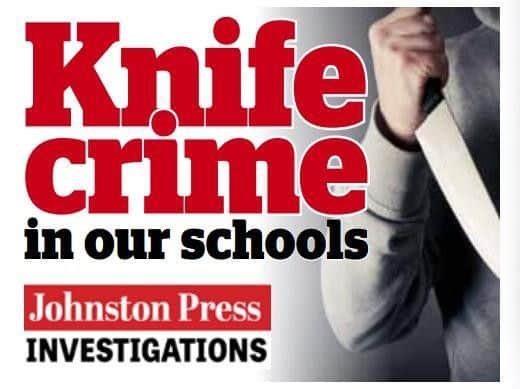SPECIAL REPORT: So how do we solve school knife crimes?


But during our four-month project to explore knife crime in schools, the Johnston Press Investigation Unit has spoken to dozens of individuals at the front line of a problem which is affecting communities from rural Wales to well-heeled Surrey as well as Britain’s largest cities.
Advertisement
Hide AdAdvertisement
Hide AdThese are the measures that those - from campaign groups to victims - who deal with knife crime in our schools and its effects on a daily basis have told us are badly needed.


Anonymous reporting
Dr Vincent Uzomah was grievously injured when a 14-year-old boy apparently motivated by racial hatred stabbed him in a Bradford school in 2015. The attacker had told his friends what he intended to do but none felt able pass on a warning to teachers. Dr Uzomah and others believe that a mechanism is needed for students to feel that they can provide potentially life-saving information without being penalised and, if necessary, with anonymity. As Dr Uzomah put it: “We have so many good kids in schools; they would report if they weren’t afraid to.”
Curriculum
Every secondary school offers its pupils guidance on citizenship and personal development. Teaching unions and headteachers say this time should be used to deliver the message that, rather than offering some form of protection, carrying a knife increases the risk of injury, death or imprisonment. But senior staff warn that schools often struggle to find room in the curriculum and the resources to drive home this lesson. One knife crime reduction charity, Word 4 Weapons, said that half of the schools where it offered to provide lessons responded that they had no budget to fund the initiative.


Ofsted
Campaigners and London Mayor Sadiq Khan have said they would like to see it made compulsory for schools to have a plan to help prevent knife crime and support students and families in the event of an incident. The Ben Kinsella Trust, which works to reduce youth knife crime, said it would like to see the development of an adequate prevention plan introduced as one of the requirements for a school to pass its Ofsted inspection.
Funding for youth services
Advertisement
Hide AdAdvertisement
Hide AdIt is a familiar but no less significant mantra from front line workers - the rise in knife crime has coincided with cuts to youth and education services and the availability of youth mental health services. Unison, the trade union, reported that some £387m was cut from youth services between 2010 and 2016. Youth workers argue that these interventions with teenagers who are vulnerable to being persuaded to carry knives were vital in achieving a pattern which saw knife crime falling until 2011. They would like to see new financial resources to offers the same or similar services.
Data
The JP investigation has established that there is no single, comprehensive source for tracking and monitoring the scale of knife crime in our schools. Organisations have told us of their shock at our findings. Many local authorities told us they do not collect relevant figures, arguing that police are responsible for tracking criminal offences and it is the job of individual schools to report them. The i had to use freedom of information rules to collect information from individual police forces. Campaigners have said they would like to see a central database established so policy makers - from beat bobbies to the Home Secretary - know the true scale of the problem.
Police in schools
Since 2006, it has been Government policy to dedicate a police officer to schools in areas where there are problems with anti-social behaviour. The scheme was credited with halving crime within a 200m radius of participating schools. But austerity has had an impact on this scheme. In some places, such as London, the number of these Safer Schools Officers is increasing and Scotland Yard intends to have one such liaison officer for every secondary school in the capital. But elsewhere the picture is less positive. Research last year showed a 20 per cent drop in the number of school-based officers and 13 forces have none at all. In Nottinghamshire, one school dipped into its own budget to fund an officer. Campaigners argue there is an urgent case for funding such schemes.